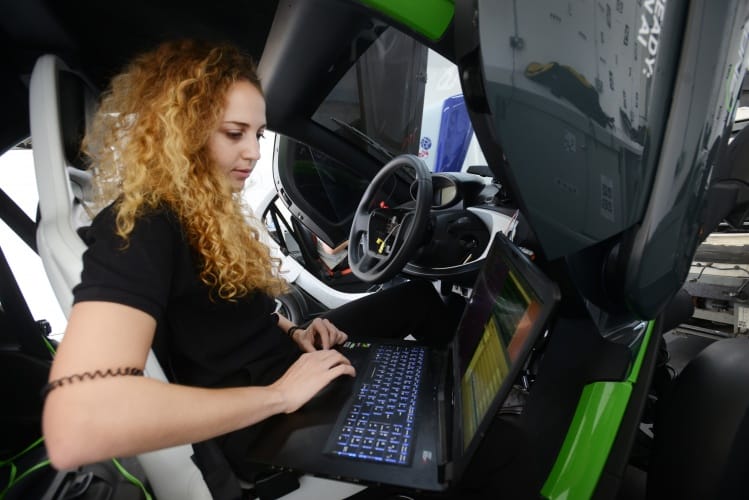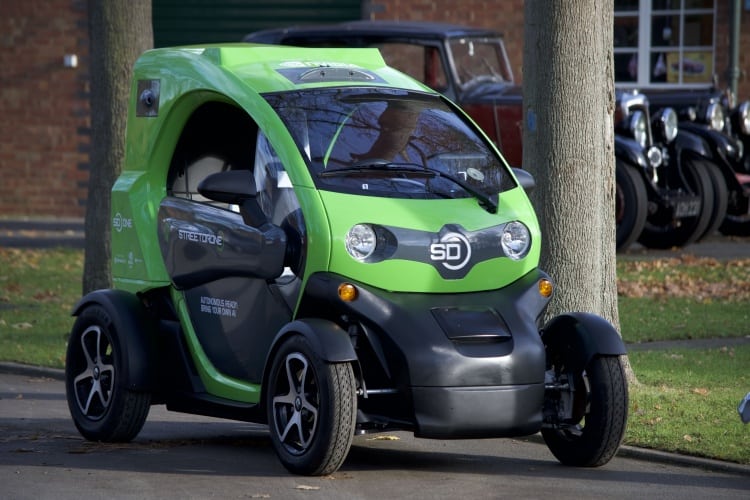There has never been a better time to look for a job in the autonomous vehicle (AV) industry. It’s emerging as one of the fastest growing sectors in the UK, creating a huge amount of job opportunities. So whether you want to become a software engineer or just want to work in one of the most exciting sectors, my tips below might help you land your dream job.
Learn the basics
One of the first steps you need to take in order to secure a job in the driverless car industry is to learn how to code. You may think coding is only for web development jobs, but an understanding of coding is now an essential part of most jobs in the driverless car industry.
This is because the main job of an engineer is thinking about the software and AI that powers the car. There are many courses online that can help you learn the basics, from Codecademy to freeCodeCamp. Udacity also offers a Self-Driving Car Nanodegree that you can complete online, teaching you the basics to become a driverless car engineer.

Pick the best university course
Choosing the right university course will enhance your chances of getting the right job. Robotics Engineering covers a broad range of topics that will perfectly set you up for a driverless car career, including mechanical engineering, electrical engineering, electronic engineering and computer science. This multidisciplinary approach enables you to understand the full research and practical implications that take place in the industry, allowing you to choose exactly which area of the AV industry you want to specialise in.
Also, many university courses now encourage you to take part in a year-long placement in the industry with the aim of developing your own personal skills and give you a better understanding of how the theory is applied. The year out will also give you a greater perspective on your career path and may even change your mind in choosing which area of engineering you want to concentrate on.
Build a portfolio of robotic projects
Following the various courses, I recommend working on a few individual projects that will allow you to make your own personal portfolio. For example, autonomous rovers face many of the same problems that driverless cars face and there are several GitHub libraries of open source UAV software out there to help you. This will clearly showcase to your potential employer the progress you’ve made and your commitment to your career.

Get some work experience
According to the Institution of Engineering and Technology, 40 per cent of engineers believe people starting out in the industry lack practical experience so any time you can put in with a real company will help you stand out from the crowd. Start by asking local companies if you can spend a few days or weeks doing work experience or even a summer internship. This will put you in a fantastic position for when you want to apply for year-long placements, which can be as competitive as permanent jobs.
Start networking!
Luckily for you, the engineering sector is full of professionals who want to help you get the most out of your career. So make the most out of the regular industry networking events, either attending meetups/lectures or even joining Slack groups. These groups will allow you to both, build up your professional network and help you see which skills are in demand from companies. With most of the best jobs often never posted online, I can’t exaggerate enough the benefits of networking as a newcomer to the industry.




Red Bull makes hydrogen fuel cell play with AVL
Formula 1 is an anachronistic anomaly where its only cutting edge is in engine development. The rules prohibit any real innovation and there would be...